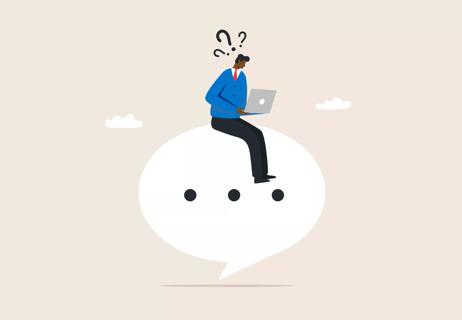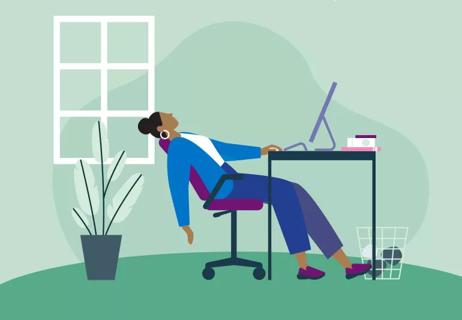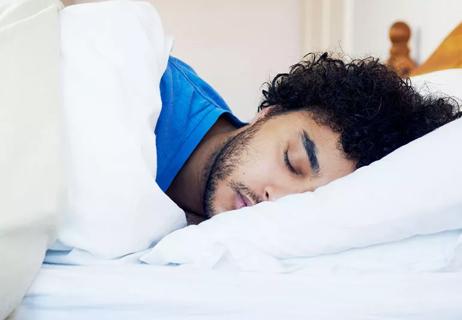Sleepiness and lack of energy aren’t the same thing

Almost everybody feels unusually tired or drained at times, and that’s normal. But could your lack of energy be a sign that something else is going on? Two possibilities for your weariness are fatigue and narcolepsy.
Advertisement
Cleveland Clinic is a non-profit academic medical center. Advertising on our site helps support our mission. We do not endorse non-Cleveland Clinic products or services. Policy
You may have heard the words, but there’s a lot of confusion about the particulars of these two very different conditions.
Nurse practitioner Jennifer Brubaker, PhD, APRN, explains more.
Video content: This video is available to watch online.
View video online (https://cdnapisec.kaltura.com/p/2207941/sp/220794100/playManifest/entryId/1_xjioqggo/flavorId/1_5f3sgelj/format/url/protocol/https/a.mp4)
Nancy Foldvary-Schaeffer, DO, breaks down the most common symptoms and treatments for narcolepsy.
Narcolepsy is a disorder of sleep-wake control — sleep intrudes into wakefulness and wakefulness intrudes into sleep. There are specific signs that point to narcolepsy:
Advertisement
For fatigue: There is often an underlying cause. Here are some possibilities:
For narcolepsy: The exact cause is uncertain, but may relate to a loss of orexin signaling for some people. (Orexin is a neurotransmitter that helps regulate your sleep and wake states.) The hypothalamus in the brain releases orexin to help stimulate other brain regions to help keep you awake. If there is not enough orexin, normal sleep and wake patterns sometimes blur.
Other possible causes of narcolepsy include:
For fatigue: Since it is likely a sign of another problem, your healthcare provider will focus on finding and treating that.
If a primary cause is not found, your healthcare provider may recommend:
For narcolepsy: Your healthcare provider likely will recommend a sleep study, encourage changes in behavior, such as strategic napping and caffeine intake. However, you may need prescription medications to help stay awake during the day or improve sleep quality at night.
It’s important to have a good psychosocial support system. Talking to your family about your condition or working with a counselor or a support group can help a lot.
Good sleep hygiene is important whether you’re dealing with fatigue or narcolepsy.
Here are some tips:
If you feel tired all the time or have trouble staying awake in meetings or at other times during the day, talk to your healthcare provider. They can help you pinpoint the cause and find a way to treat it.
Advertisement
Learn more about our editorial process.
Advertisement

Drink some water, take a little walk, step away from your computer and chat with a coworker, or even your toddler, to help ward off daytime sleepiness

What’s on your plate can either help power you through your day or put you in nap mode

Eating turkey is only a small part of the reason you want to take a nap

Carve out time for yourself — and cut down the number of decisions you make each day

If you’re worn down and sluggish, it can be more than just feeling exhausted

Practical solutions for fighting flagging energy

Don’t be misled by bogus answer to fatigue

A Q&A to help you fight exhaustion and get more sleep

Wearing a scarf, adjusting your outdoor activities and following your asthma treatment plan can help limit breathing problems

Your diet in the weeks, days and hours ahead of your race can power you to the finish line

When someone guilt trips you, they’re using emotionally manipulative behavior to try to get you to act a certain way